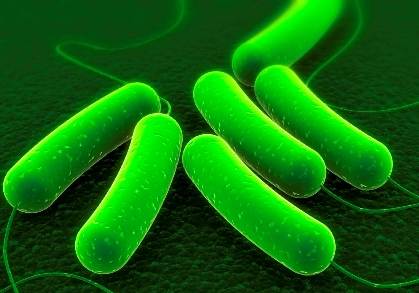“The Lung Ranger” Cystic Fibrosis Device From Dundee University Wins 3 Awards

.jpg)
A group of undergraduate researchers from Dundee University are the proud recipients of 3 prizes from a conference in Boston, Massachusetts for their breakthrough work on harnessing a fluorescent bacteria to detect a potentially dangerous lung infection in cystic fibrosis (CF) patients. “The Lung Ranger,” an early warning system for CF patients, was the team’s entry for the International Genetically Engineered Machine (iGEM) competition, and was presented at the national Cystic Fibrosis Trust conference in Manchester.
The Lung Ranger is a user-friendly, hand-held medical device that can used either by a doctor or a patient. The device uses the E. coli bacteria strain normally found in the colon for healthy digestion to detect the presence of either Pseudomonas aeruginosa or Burkholderia cenocepacia by emitting a detectable fluorescence. The fluorescent light now only allows for the detection of the bacteria types — both of which are quite dangerous to CF patients — but also allows doctors to measure severity of the bacterial infection as well.
The Dundee team includes the following STEM students:
- Dave Burrell (Computing Science)
- Gillian Forsyth (Mathematical Biology)
- Scott McCrimmon (Plant Sciences)
- Roddy McNeill (Biological Chemistry and Drug Discovery)
- Jessica Martyn (Microbiology)
- Dimitrios Michailidis (Molecular Microbiology)
- Aleksandra Plochocka (Mathematics)
- Robyn Shuttleworth (Mathematics)
- Fatima Ulhuq (Pharmacology)
- Jenny Wood (Molecular Microbiology)
During last weekend’s international conference in Boston, which pitched competitors from 245 academic institutions from 32 countries against each other, iGEM Dundee won “Best Health and Medicine Project” out of 45 teams, “Best Policy and Practices,” and the “iGEMers Prize.” These awards recognize their work on a genetically modified strain of E. coli, contained in an electronic device that enables them to react to certain bacteria in patients’ sputum samples.
[adrotate group=”1″]
“It was fantastic to meet teams we had communicated with over social media all summer, and there were some truly amazing and forward thinking projects and presentations,” said Jenny Wood, a Molecular Biology major and member of the Lung Ranger team. “The whole team would like to thank the Cystic Fibrosis Trust and the UK CF community for their support throughout the Lung Ranger Project; without the input from patients and healthcare professionals, our project would have been science without soul.”
Despite the fact that the Lung Ranger is still in the “proof of principle” stage of its development, the Dundee team has much to be proud of, as they have already been approached by some of the most prominent representatives in the industry who are interested in seeing how the project progresses and whether or not it can be commercialized into a viable device for treating cystic fibrosis.







